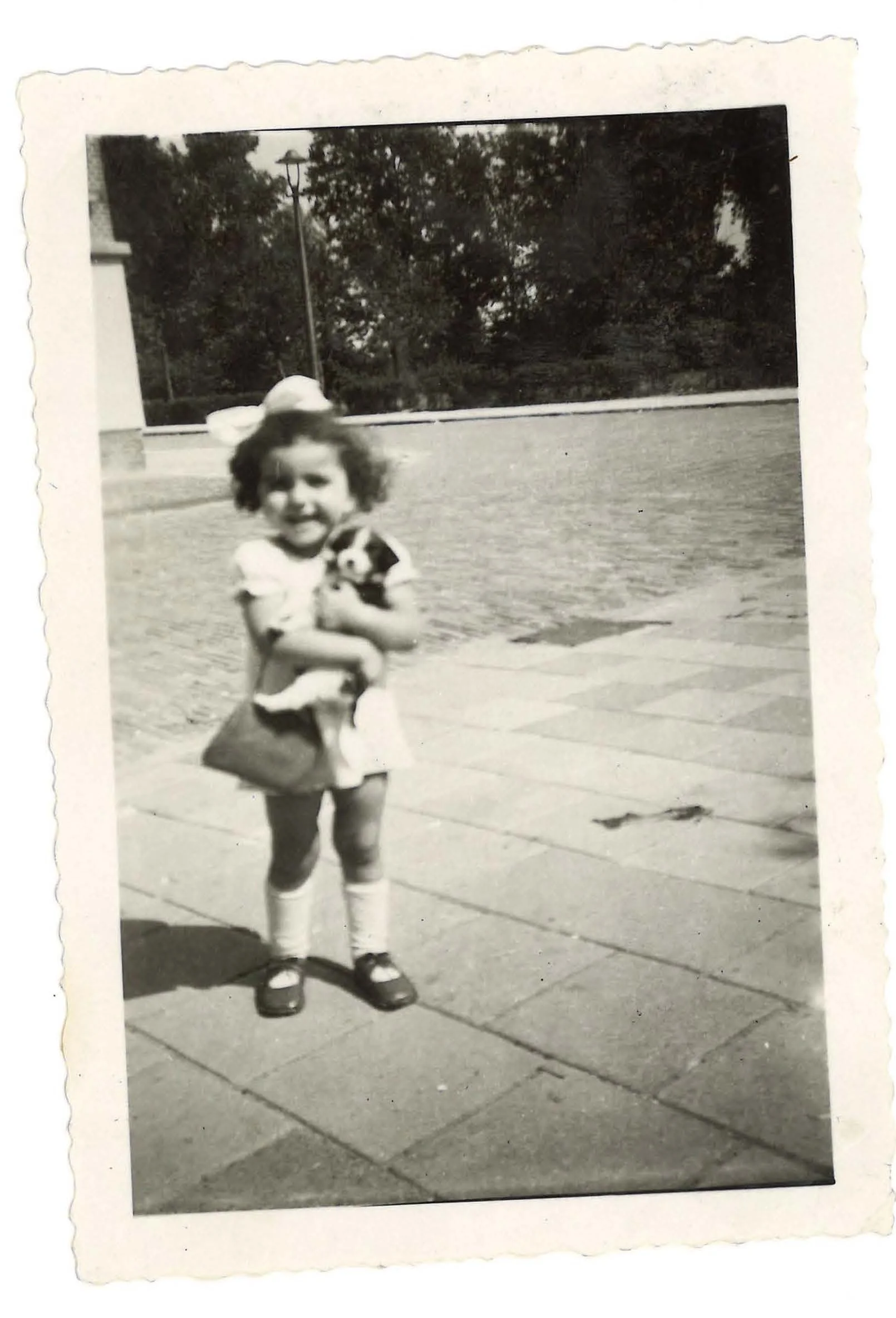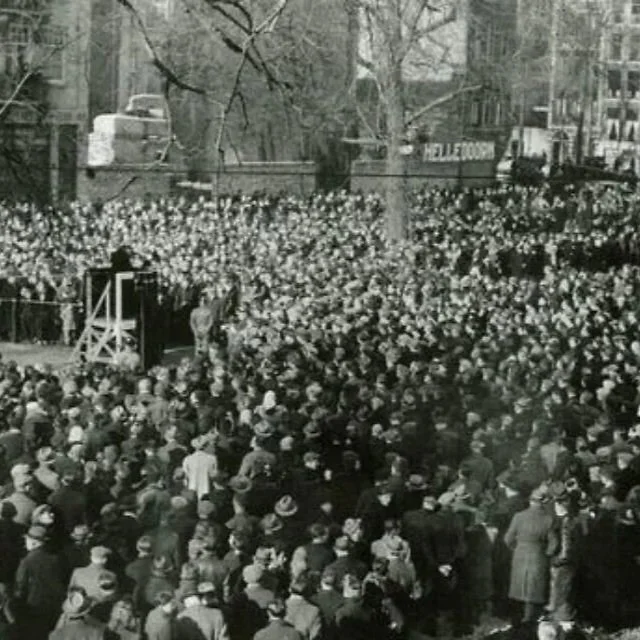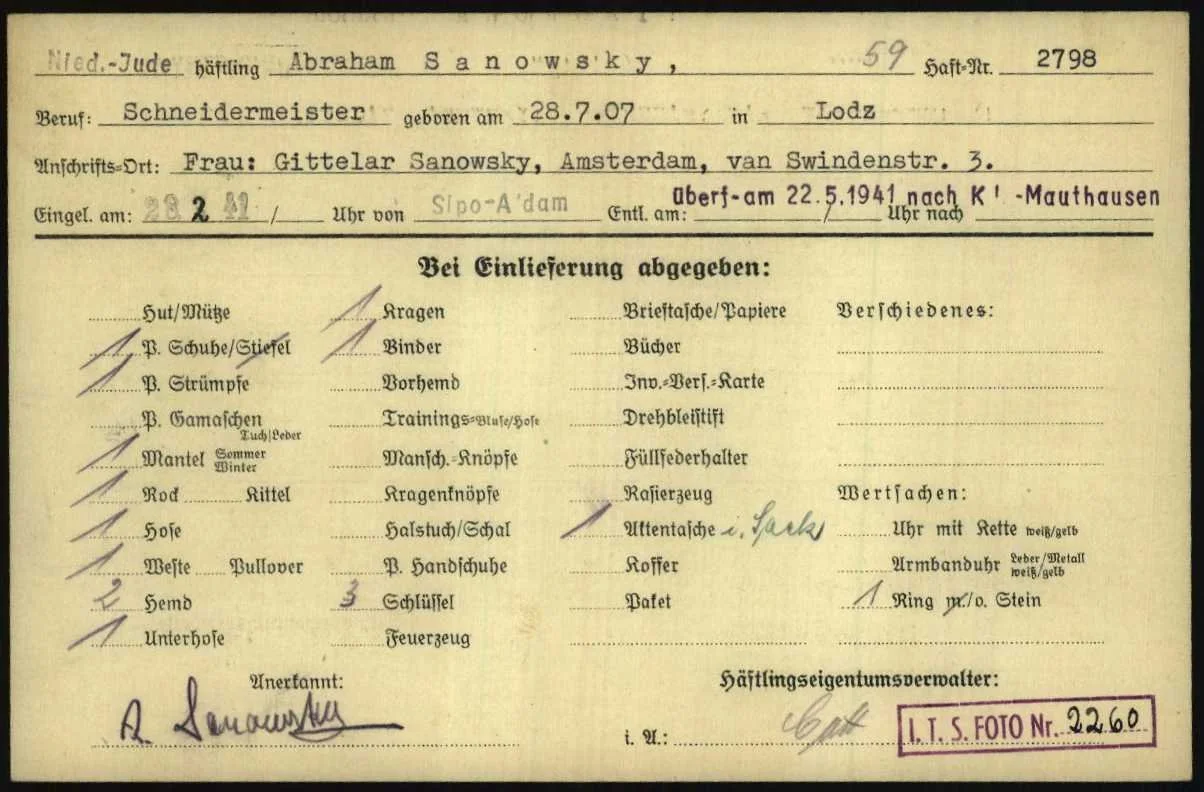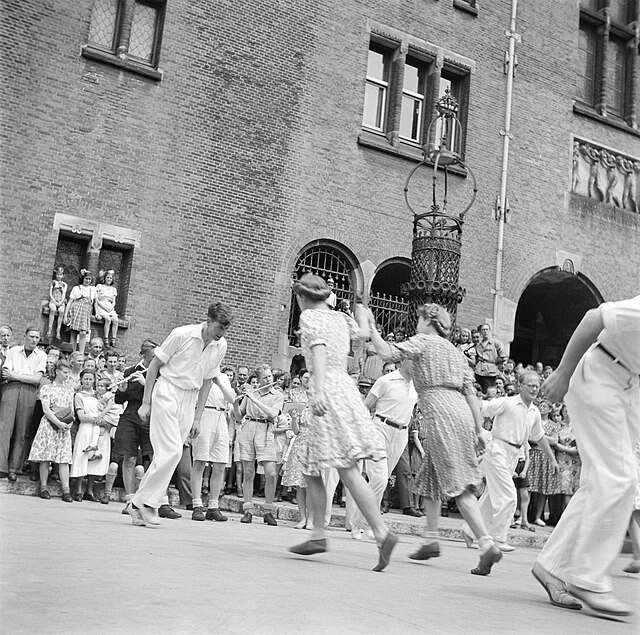new release from international best selling author, Doug Gold
Saving elli
From the internationally acclaimed, best-selling author of The Note Through The Wire comes Saving Elli, another gripping true story of sacrifice, sabotage, survival – and impossible choices - in the darkest days of war.
Order your copy now
NEW ZEALAND
AUSTRALIA
Set in Nazi-occupied Amsterdam, just a few checkpoints from Anne Frank’s secret annex, another Jewish girl is hidden. Her name is Elli. Her father has been executed at Mauthausen concentration camp. Her mother is forced to flee for her life. And Elli is next on their death list.
To save her, resistance couple Frits and Jo Hakkens are willing to risk everything, concealing her in a camouflaged space above the ceiling. A place they pray the Nazis will never find. With shrewd cunning and unflinching courage, they outwit the Gestapo, survive relentless searches, endure brutal interrogations, and face betrayal from those they thought they could trust. Keeping Elli safe may come at a deadly cost.
By night, Frits forges ID papers; by day, he sabotages warplanes at the Luftwaffe assembly plant. Jo works in the shadows, aiding Jewish fugitives and smuggling underground newspapers through a city crawling with enemy patrols – all while protecting the condemned child.
But, with the Germans closing in, how much longer can they hold out?
Watch the trailer
Characters
Frits Hakkens
Frits is a young Dutch patriot employed at the Fokker aircraft factory in Amsterdam, which has been taken over by the Germans for the production of military aircraft. While appearing to be a loyal worker, Frits secretly carries out acts of sabotage within the factory to disrupt the Nazi war effort.
His involvement in the resistance extends beyond sabotage. Frits also forges identity papers and travel documents to help Jews evade arrest and deportation.
When a Jewish mother is forced to flee for her life, Frits and his wife, Jo, agree to shelter her young daughter, Elli. For nearly two years, the Hakkens hide Elli until Frits’s own arrest is imminent and the risk has become too great to continue.
Jo Hakkens
Frits’s wife, Jo, also plays an active role in the resistance. Alongside Frits, she risks everything to help Jewish families escape through Belgium. Her resistance work places her in constant danger—she is betrayed by informants, narrowly avoids multiple arrests, and is nearly raped. Throughout the time they shelter Elli, Jo cares for her as if she were her own daughter.
Abraham Szanowski (sometimes spelt Abram or Avram)
Abraham, a tailor living in Amsterdam, is arrested during the first mass roundup of Jews in February 1941. He is deported first to Buchenwald concentration camp, and later to Mauthausen - one of the most notoriously brutal camps in the Nazi system. There, he is subjected to forced labour until he becomes too weak to continue, then executed when he can work no longer.
For more information on Abraham, check out these sites:
https://www.amsterdam.nl/stadsarchief/themasites/razzia/abram-szanowski/
https://www.oorlogsbronnen.nl/tijdlijn/854795e1-c406-460e-aa72-570d0af97f1c
Gita Szanowski
Gita is Abraham’s wife. When she receives a summons to report for deportation to a so-called "labour camp", she understands all too well that it is a one-way journey to a death camp. Faced with an impossible choice, she knows that her only chance of survival is to flee Holland. Her housekeeper at the time is Jo Hakkens.
Elli Szanowski
Elli is the daughter of Abraham and Gita. At just 14 months old, Elli is far too young to survive the perilous journey her mother faces through occupied Europe. Forced to make an unbearable choice, Gita leaves her daughter in the care of Jo and Frits Hakkens, who risk their lives to hide the child from the Nazis.
READ AN EXCERPT
BACKGROUND AND RESEARCH
Saving Elli is based on the true story of resistance couple, Frits and Jo Hakkens, who hid a Jewish girl, Elli Szanowski, for almost two years in Amsterdam - a city crawling with Nazis. They faced betrayal, repeated raids, relentless surveillance and the constant risk of arrest. Elli’s father, Abraham, was executed at Mauthausen concentration camp; her mother, Gita, was forced to flee for her life.
While I’m a storyteller, not a historian, I found the research for this book totally absorbing. I spent countless hours delving into the conditions in Nazi-occupied Holland and the horrors of the concentration camps.
The first strands of the story came to me. Gloria Hakkens, Frits and Jo’s daughter-in-law, had already carried out an extraordinary amount of groundwork before I began writing, and her findings were instrumental in shaping the narrative. She had intended to write a family memoir and had gathered an impressive amount of material for that purpose.
Gloria’s husband, Marcel, shared his memories of his parents, which provided invaluable insight into their personalities and values. Those memories not only helped me portray them with greater depth and realism but also inspired many scenes in the book - especially his accounts of their resistance work, narrow escapes and brushes with the Nazi authorities.
Then there was the research Elli herself had done. While she was too young to recall her time with Frits and Jo, she later uncovered much about her parents’ ordeals, which helped shed light on their story.
While the full extent of Abraham’s suffering at Mauthausen will never be known, records confirm that he worked in the notorious granite quarry. To bring his ordeal to life, I drew on historical accounts and testimonies from the few who did survive the camp’s horrific conditions. It is certain that Abraham endured the same cruelty, deprivation, and inhumane treatment.
Written after the war, Gita’s own brief summary of her harrowing journey through Belgium and France to reach safety in Switzerland also filled in some gaps.
To complement these personal accounts, I travelled to both Amsterdam and Mauthausen. In Amsterdam, I explored the city with the help of a very knowledgeable historian who guided me through the places where the events occurred. As he pointed out the sites connected to this story, the past felt very present. I stood outside Tidorestraat 66, where Frits and Jo once lived - now replaced by a characterless 1970s apartment block – and visited Eerste van Swindenstraat 3, the former site of Abraham’s tailor shop. I spent hours at the newly renovated Resistance Museum, the Holocaust Museum, and the Jewish Museum. At the Hollandsche Schouwburg theatre, where Jews were once processed before deportation, I found Abraham’s name etched into the memorial wall. His name also appeared at the new Holocaust Names Monument, one of 102,000 named concentration camp victims.
Mauthausen left a lasting impression on me. I’ve visited other concentration camps — Dachau, Auschwitz, among others — but Mauthausen was the most haunting of all. Standing at the foot of the 200 steep steps up the appropriately named Stairs of Death and imagining Abraham - exhausted and starving, climbing again and again with massive slabs of granite - brought me to tears. Few would manage it once - he did it for 12 hours a day, every day.
Alongside personal stories and visits, I immersed myself in written accounts – dozens of books – about the Dutch resistance; about Nazi collaborators; about Jewish fugitives; about escape routes from Holland; about betrayal, about Mauthausen; about everything to do with the Nazi occupation and the atrocious conditions in concentration camps.
But war is not all brutality and oppression, so I also found out as much as I could about the daily existence of ordinary people during the Nazi occupation. To offset the savagery, I’ve tried to portray what everyday life must have been like for people like Frits and Jo. While they may not have personally encountered every situation I’ve described, the events are representative of the dangers and choices – and occasional moments of normalcy and joy – that defined life for many like them during the war.
Exploring the truth behind this story was almost as rewarding as writing it. I can only hope booklovers enjoy reading it.
GALLERY
Jews arrested with Abraham in the razzia of 22 February 1941 (Photo credit: Wikimedia Commons)
Frits and Jo joined 300,000 Amsterdam workers in the February Strike. Strikers here represent a small section of protestors. (Photo credit: Mary Fillmore collection)
Entrance to Mauthausen concentration camp (Photo credit: Jewish Virtual Library).
Mauthausen concentration camp prisoners in barracks (Photo credit: J Malan Heslop collection at the L. Tom Perry Special Collections, Harold B. Lee Library, Brigham Young University,)
“Stairs of Death” at the Mauthausen granite quarry. Prisoners, five across, hauling huge blocks of granite up 200 steps (Photo credit: NIOD Amsterdam)
Parachutists” Cliff” at the Mauthausen granite quarry. Prisoners jumped off the cliff to commit suicide or were pushed over the edge by Nazi guards (photo credit: German Federal Archive)
Abraham’s Buchenwald concentration camp Registration Card (Photo credit: Arolsen Archives)
Page from Mauthausen Death Book. All deaths were meticulously recorded (Photo credit: National Archives Collection of World War II War Crimes Records)
War wasn’t all tyranny and oppression. Here, Amsterdammers enjoy dancing in the square (Photo credit: Wikimedia Commons)
Even in war, people lived and laughed. Two acrobats entertain the crowd (Photo credit: Wikimedia Commons)
Children didn’t understand the occupation and the suffering it caused. Here, two young girls share a secret (Photo credit: Wikimedia Commons)
Fokker aircraft factory, Amsterdam where Frits sabotaged German military aircraft (Photo credit : Wikimedia Commons)
Frits and Jo
Leny and Elli
Abraham’s Tailor’s shop on Eerste van Swindenstraat, Abraham and Gita are standing in the doorway
Elli on a rocking horse, probably made for her by Frits
A Letter to Good Morning TV from the great grandson of Frits and Jo: It was Caleb who sparked the final search for Elli.
Praise For ‘Saving Elli’
“Saving Elli is a compelling, well-told story …a page-turner…”
Sue Reidy, NZ Listener
“Doug Gold vividly brings to life this moving and heart-stopping true story. It will move you to tears, but it’s also a story of hope and resilience.”
read the full article - Karen McMillan, NZ Booklovers
“A story of unbelievable bravery and an unending search.”
Read THE FULL ARTICLE - Mike White, Sunday Star Times
"Saving Elli is a heart-wrenching, yet inspiring journey that will stay with you long after you turn the last page... takes you on an emotional rollercoaster of love, loss, and resilience."
Pennys Bookstore, Hamilton
“Doug Gold has brought this remarkable story back to life…”
Watch full story - Sacha McNeil, TVNZ’s Seven Sharp
“...IT’S An incredible and unforgettable STORY..."
MIKE PURU, THE BREEZE DRIVE HOST
“…this book is brilliantly written, it’s heartbreaking, it’s poignant and deeply moving. It will tug hard at your heartstrings, so definitely keep a box of tissues nearby. …It’s an incredible read.”
Caroline o’sullivan, Goodreads
“…Doug Gold vividly brings to life this moving and heart-stopping true story.”
Karen McMillan, Books Editor, The New Zealand Herald.
“...an extraordinary WWII story which has resonances of Anne Frank..."
Listen to full review - Joan McKenzie, Whitcoulls, on Newstalk ZB's The Sunday Session with Francesca Rudkin
About me
Doug Gold is an internationally acclaimed bestselling author renowned for his compelling true stories. His books, written in the style of a novel, have captivated readers worldwide and have been translated into many foreign languages. His previous two books, The Note Through The Wire and The Dressmaker and The Hidden Soldier were both No 1 Bestsellers and remained on the bestseller charts for several months.
Before his writing career, he was a successful media entrepreneur. He co-founded the More FM radio network and, later, NRS Media, an international media company with offices in the US, Canada, UK, Australia and South America. His numerous industry awards include Outstanding Contribution to Radio, Broadcaster of the Year, Metropolitan Station of The Year, Outstanding Leadership and a US-based International Broadcaster of the Year award two years in succession. He also consulted to global media outlets before shifting his focus to writing. He lives in Wellington with his wife, Anemarie.

































